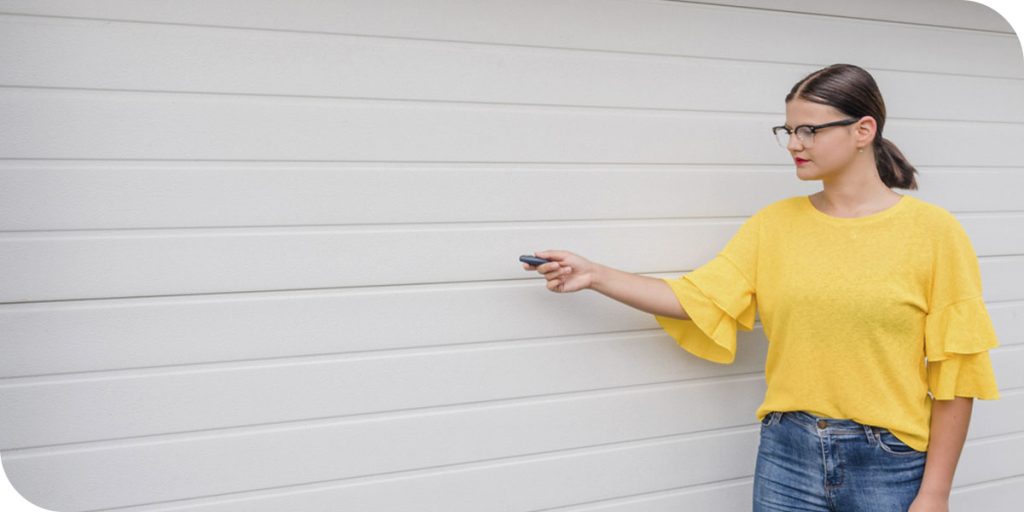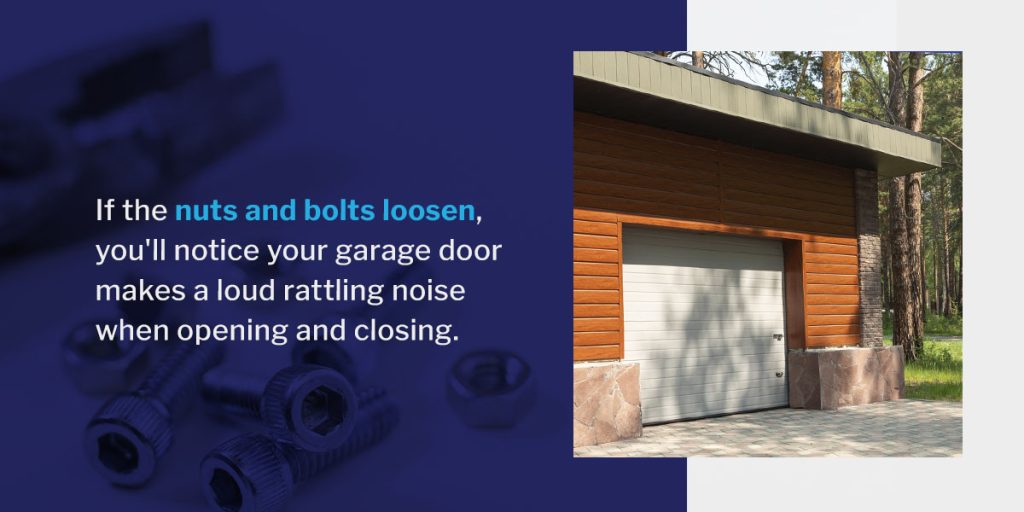
Most garage doors make some level of noise while in motion. But if your garage door makes rumbling and grinding noises loud enough to wake the neighbors, there could be an issue.
Garage doors can become noisy for various reasons, so you’ll need to spend some time troubleshooting the issue. Depending on the problem, you might be able to resolve the issue on your own. But when worn or damaged parts are the cause of the commotion, it’s best to reach out to our professional repair technicians at Viking Overhead.
A noisy garage door is more than an annoyance — it usually signals a problem. Neglecting a squeaky garage door needing lubrication will lead to excess wear and tear on moving parts, increasing the risk of damage. Other issues like loose nuts and bolts, worn-out springs and an off-balance door are also safety hazards. Addressing the noise can restore smooth function and prevent the need for extensive repair work.
These are some of the most common causes of a loud garage door with practical solutions:
Lack of lubrication is one of the most common causes of a noisy garage door. Garage doors rely on several moving parts to move up and down at the touch of a button. The rollers, extension or torsion springs, bearing plates and hinges are all parts that move when the door is in motion. These parts need lubrication for smooth function. Without lubrication, metal will grind against metal and make unpleasant squealing sounds.
To resolve this issue, you can lubricate the parts. Disconnect the opener device and grab a ladder to reach each moving part. Clean the tracks and rollers and wipe down the hinges, bearing plates and extension or torsion springs to ensure dirt and dust can’t clog up the system. Apply white lithium grease or silicone spray to each part and wipe away any excess.
Your garage door and its moving parts might not be the problem — the opener device could be faulty. When openers start making grinding sounds, a gear inside the device could be worn down or damaged. When the gear wears down, the chain or belt drive will struggle to turn around the gear. If you don’t replace the gear, the opener will soon fail.
You should be able to hear that the noise is coming from the opener, although you confirm the source by disconnecting it and using the emergency cord to operate the door manually. If the door moves without odd sounds, your garage door opener is likely the culprit. If it is, contact a professional to repair or replace the opener.
Most garage doors either use extension or torsion spring systems. Extension springs are more common in older doors. These systems use two springs on either end of the overhead horizontal tracks. Garage door systems that use torsion springs only use one spring above the garage door in the center.
Worn-out springs will show signs of wear and tear, like fraying and corrosion. Visible gaps in the spring are another sign of damage to look for. If you notice these signs of damage, avoid attempting to replace the spring with a do-it-yourself approach. Torsion and extension spring replacement is a dangerous task that requires specialized skills and equipment.
Old or damaged garage door springs are also a safety hazard. If the springs break, the door will come crashing down with its full weight. So, if you notice signs of wear and tear, contact Viking Overhead for 24-hour emergency garage door repair services and avoid using your garage door in the interim.
The nuts and bolts that hold the garage door and the tracks in place can loosen over time. If the nuts and bolts loosen, you’ll notice your garage door makes a loud rattling noise when opening and closing.

Grab a wrench and a socket and inspect the nuts and bolts along the system. When tightening any loose bolts, be careful not to overtighten them, as this will risk stripping the screw holes or damaging the carriage bolt heads.
A loud screeching sound could be caused by worn or damaged garage door rollers. If the rollers are damaged, they won’t be able to move smoothly along the tracks, and the garage door will move noticeably slower.
If so, contact a professional repair technician to replace the rollers and restore smooth, quiet operation.
An off-balance garage door is relatively easy to diagnose. Two key signs are an uneven appearance and significantly slower movement. You can also test the balance by disconnecting the opener system and using the emergency release cord. When you open the door halfway, it should hold in place. If it slips down or falls completely, the door is off-balance.
The door will also make loud scraping sounds as it opens or closes. If you hear banging noises, the garage door has slipped off the tracks. Contact a repair technician to re-balance the door and restore smooth function.
When garage door noises are standard and unrelated to an issue, there are ways to reduce noise.
Replace plastic or metal rollers with nylon alternatives. Nylon rollers with steel ball bearings are quieter. You can also install a garage door opener isolator kit. This soundproofing kit can reduce noise by minimizing vibrations. For maximum noise reduction, consider soundproofing your garage with insulating materials and acoustic panels.
Preventive maintenance is essential to keeping your garage door in good condition and preventing noisy motions. Clean and lubricate the moving parts every six months and inspect them for damage.
Viking Overhead can manage your garage door repair needs as they arise. We’ll inspect the system thoroughly to identify and replace damaged parts.

Viking Overhead is a veteran-owned and operated garage door repair company with over 30 years of experience. Our expert technicians have the tools and expertise to diagnose and restore noisy garage doors. Whether your garage door is squeaking and screeching or banging and grinding, you can trust us to find the issue and fix it.
We offer free estimates and no service call fee. We’ll come out and investigate the noise and offer a quote at no cost. Contact us online to learn more about our garage door services or reach out directly at 817-600-4224.